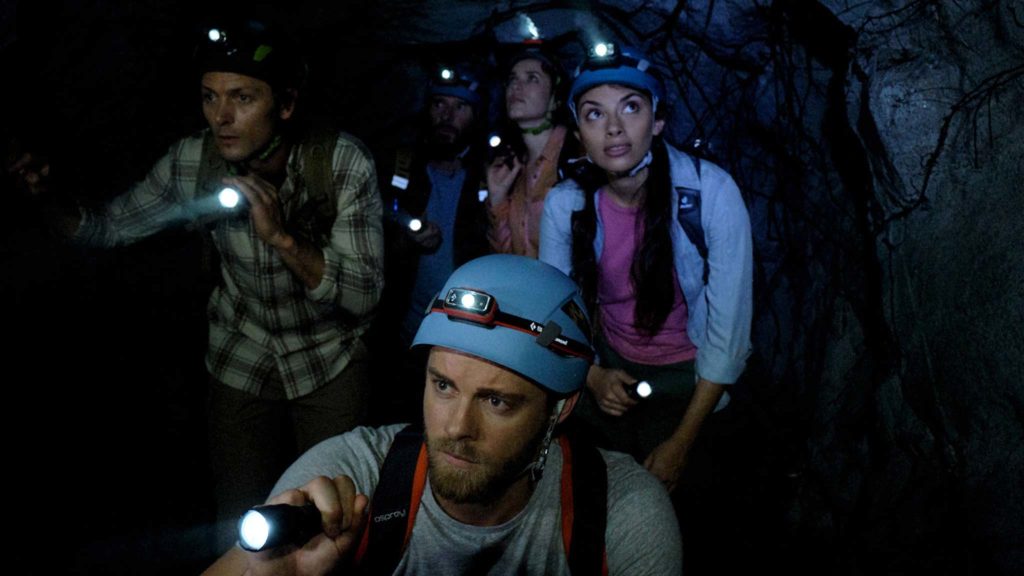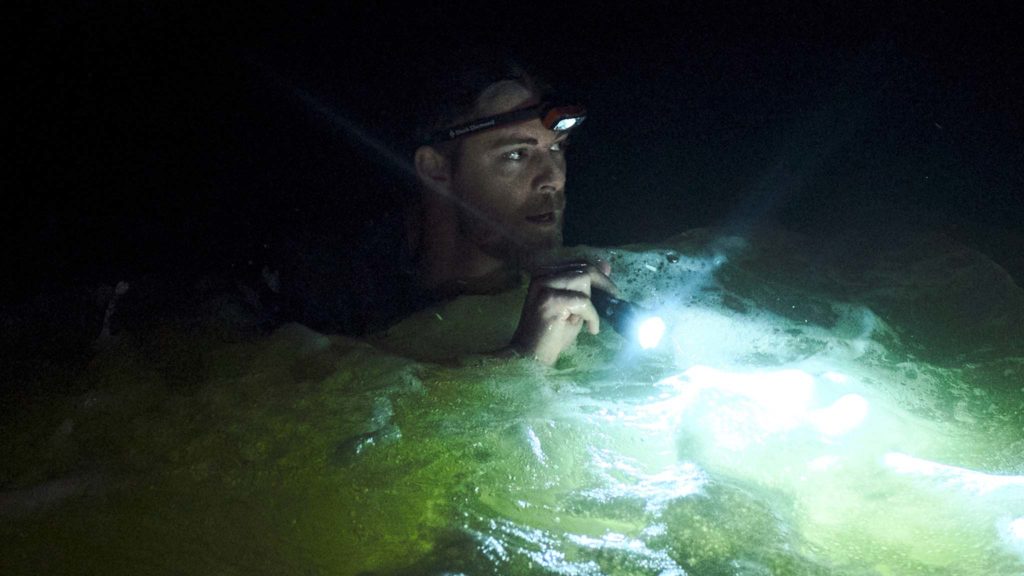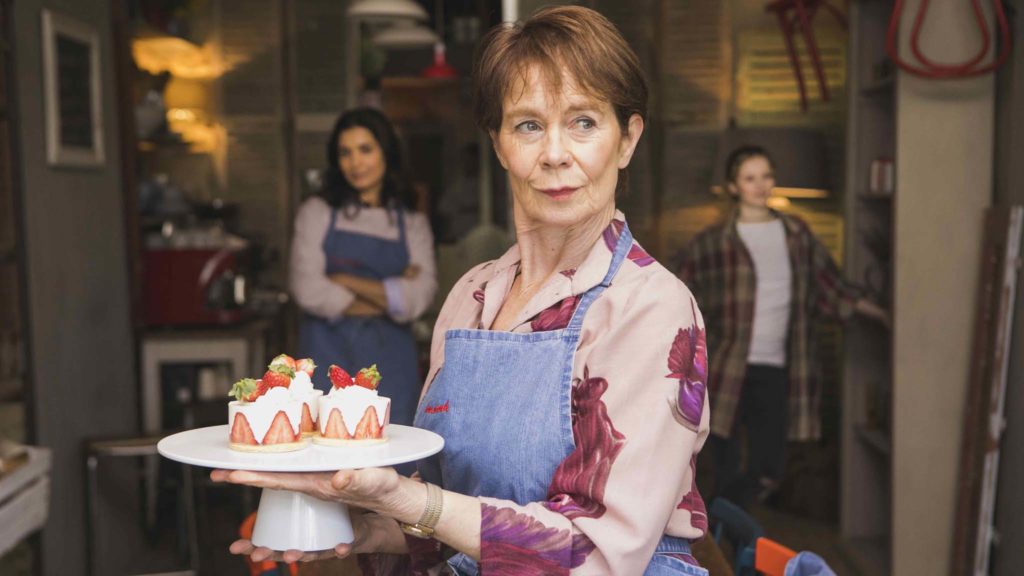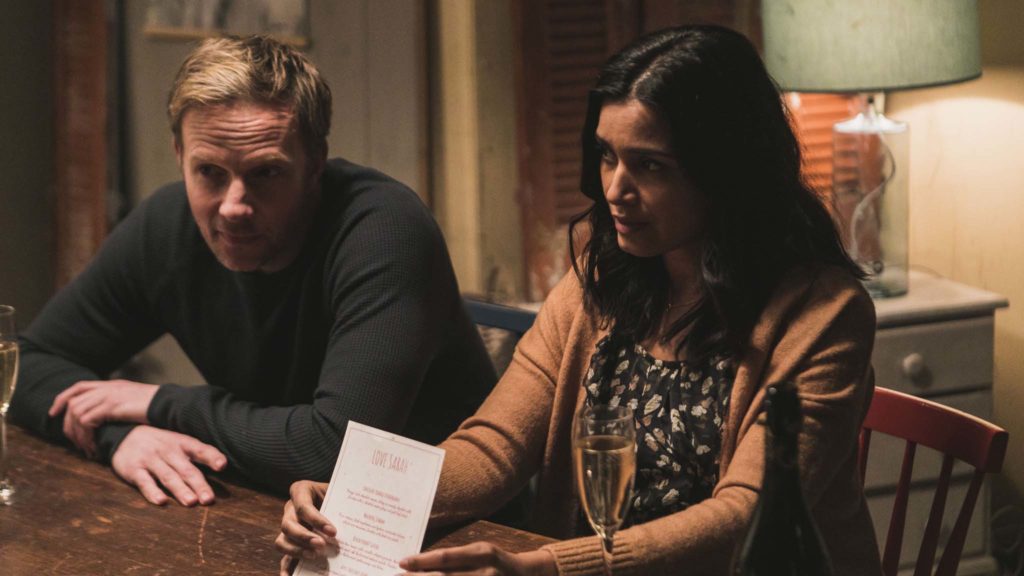Horror
Black Water: Abyss (15)
Review: Thrill-seekers get far more than they bargain for in director Andrew Traucki’s bloodthirsty, waterlogged horror, which has the misfortune of surfacing in the wake of yesteryear’s infinitely superior woman-versus-alligator nail-biter, Crawl. Set in the lush forests of Northern Australia, Black Water: Abyss contrives to trap five unfortunate souls below ground in a rapidly flooding cave with a voracious apex predator that hunts by vibrations in the water. “Crocs are territorial. He’s not gonna be happy ’til we’re all gone,” handily explains one thinly sketched character in Ian John Ridley and Sarah Smith’s script, which struggles to find a pleasing balance between edge-of-seat scares and heart-wrenching drama.
They follow the lead of Ridley Scott’s masterclass in sustained tension, Alien, and capsize gender stereotypes to promote female characters when the going gets tough. The dimly-lit, subterranean setting should allow Traucki to slowly crank up tension and conceal surprise attacks from his reptilian menace. However, it’s painfully obviously when cast are poised to depart in a grisly fashion and we are braced far in advance for a creature to leap out of the water and clamp its jaws around a torso to a symphony of reverberating screams and crunching bones.
Gung-ho thrill-seeker Eric (Luke Mitchell) and his level-headed girlfriend Jennifer (Jessica McNamee) invite good friends Yolanda (Amali Golden) and Viktor (Benjamin Hoetjes) to join them on an expedition to a remote, uncharted cave system. Travel journalist Viktor, who is used to making up articles from the comfort of a hotel room, is concerned about the potential risks. “I thought you said going into remission made you want to live life to the full?” calmly argues his girlfriend Yolanda. “Don’t you want to experience something new?” The plucky quartet are joined by Eric’s friend Cash (Anthony J Sharpe), who stumbled upon the cave while searching for missing Japanese trekkers.
A tropical storm blows in from the north shortly after the group abseil into the mouth of the cave and stumble upon a subterranean lake. As rain lashes down, a nearby river floods its banks and Eric, Jennifer, Yolanda, Viktor and Cash are trapped below ground. The disoriented adventurers find a potential escape route blocked by at least one crocodile, setting in motion a bloodthirsty battle royale between terrified human interlopers and flesh-hungry reptiles.
Black Water: Abyss is a predictable survival thriller, which splish-splashes through confidently staged set-pieces. Scriptwriters Ridley and Smith refuse to wedge tongues in cheek when characters loudly tease impending doom – “I don’t like the look of this”, “No-one knows we’re down here, right?” – or when they engineer a hilarious finale ripped out of the Jaws playbook. McNamee and Golden are spunky damsels in deluged distress, who cope well with the gruelling physical demands of their underwritten roles.
Find Black Water: Abyss in the cinemas
Romance
Love Sarah (12A)
Review: Combine two cups of human drama with one cup of gently simmered romance, stirring in a generous splash of tragedy until the mixture thickens to a gooey consistency. Half-bake on a medium heat until beleaguered characters rise nicely and serve with a generous dollop of sweetened wish fulfilment. Love Sarah is a heartfelt drama about grief and female empowerment, made to a well-thumbed recipe in scriptwriter Jake Brunger’s cookbook. He doesn’t introduce unusual ingredients as three generations of women seek solidarity over platters of sticky Baklava, preferring a light, fluffy concoction that is methodically constructed like one of the Matcha mille crepe cakes made to order by the titular bakery for a Japanese customer craving home comforts.
Shot on location in London, director Eliza Schroeder’s visually appealing picture is a valentine to the culturally diverse capital, extolling the delicious melting pot of cultures that invisibly binds friends and neighbours from different walks of life. Shannon Tarbet and Shelley Conn are ably matched as would-be bakery shop proprietors, while the luminous Celia Imrie adds emotional depth and richness to her melancholic matriarch haunted by regret. Great British Bake Off champion Candice Brown makes fleeting appearances as the titular chef, whose death greases the wheels of a linear plot.
Ottolenghi-trained chef Sarah Curachi (Brown) and best friend Isabella (Conn) are poised to open their first bakery in London’s fashionable Notting Hill. Alas, Sarah is killed in a cycling accident en route to collecting the keys for the shop and a heartbroken Isabella discovers she cannot legally terminate the commercial lease on the bakery. Sarah’s daughter, 19-year-old aspiring dancer Clarissa (Tarbet), turns her back on ballet to realise her mother’s dream with financial backing from her estranged grandmother, one-time circus star Mimi (Imrie).
“You can definitely see its potential,” coos Clarissa as she invites Mimi into the gloomy, unfurnished premises. “What, as a crack den?” tersely replies the grandmother. United in grief, the women pool resources to transform the empty shell into a warm and inviting eaterie, serving mouth-watering confections created by Sarah’s Michelin-starred ex-boyfriend Mathew (Rupert Penry-Jones). Loyalties are tested as the new business, named Love Sarah, competes against nearby bakeries for custom and Mimi takes temporary leave from the till to fan flames of romance with eccentric inventor Felix (Bill Paterson).
Love Sarah paints a dreamy vision of fledgling entrepreneurship, far removed from the harsh reality of the modern high street. We eagerly devour lingering close-ups of mouth-watering bakes from around the world but a sub-plot involving Mathew’s past is more difficult to digest. The stakes for the new business seldom appear high and in the absence of palpable jeopardy or failure, one slice of this rose-tinted, post-Brexit life is plenty.
Find Love Sarah in the cinemas







